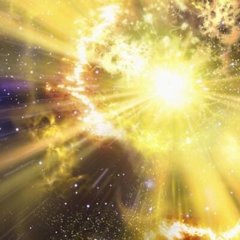-
Content count
2,026 -
Joined
-
Last visited
-
Days Won
27
-

Original text that explains the two truth doctrine
forestofclarity replied to S:C's topic in Buddhist Textual Studies
Douglas Duckworth's Jamgon Mipam: His Life and Teaching is also an excellent summary of Mipam's view in easy to read language. -
Time is short, better find out!
-

New Age Spiritual Sources - Good/Bad
forestofclarity replied to Turnip's topic in General Discussion
I actually think Western thought aligns fairly well with thought from India in ways that it does not with China or Japan. Some people find that certain Tantric expressions are less patriarchal or masculine. A lot of modern Western therapy is discovering what Buddhism has had for millenia-- in some ways, the interaction has spurred a lot of growth in psychology IME. There is a broad expression such that there are always examples and counterpoints. But ignorance doesn't arise from the East or West, and the fundamental nature is beyond male and female. So I think there's a difference between truth and culture and between therapy and spirituality. Not a lot of Western therapists seem to display the signs of mastery of traditional practitioners. OTOH, a lot of traditions are not so great at dealing with the aches and pains of lay life, parenting, etc. I think modern therapy is valuable for dealing with life, but not so much for transcending the issues of birth and death. However, there's no reason to choose one or the other exclusively. Most of my teachers have said some issues are better dealt with therapy and others with spirituality. -

New Age Spiritual Sources - Good/Bad
forestofclarity replied to Turnip's topic in General Discussion
People have claimed that we have more awakenings and stronger practices these days than ever before. However, looking at the apparent state of the world, I'm not convinced. I think most of the newer practices and movements tend to lull people into a false sense of spiritual realization. Even so, I would rather people practice some form of spirituality than none at all. Traditions developed their "modern" practices a few thousand years ago--- in Tantra and Dzogchen, for example, which is one reason you see more of this and less people developing very deep states of concentration and samadhi. -
The tools I have access to are limited. If people have thoughts on what we can do given the software, we can probably have a more detailed discussion via PM.
-
Google worked for me: https://www.thedaobums.com/topic/9681-nonduality/
-
It looks like the search function is limited to 60 days. We can change it, but this may cause slowing down on the website. This was not initially set, so this may have been one way we previously addressed the slow down. So I would ask: longer search or faster board?
-
That's weird. Everything seems to be in order. I'll see if I can fiddle with it when I have some time.
-
The critiques strike me as clumsy, dismissive caricatures. But I'm sure the traditions will survive. Back in the day, Vedantins were said to worship a giant spider. Spiritual bypassing has been a subject of wide discussion in Buddhist circles for decades, and there have been currents going back millenia. It seems to me the original post is based primarily on projecting stories onto an imagined "other." In this case, that "other" happens to include me, so it is a but bemusing.
-
There's nothing intellectual about it in my mind. If one examines closely, appearances are magical and dreamlike. This isn't somehting one chooses to believe or disbelieve. One investigates and sees for oneself. Plus the sages of these traditions do feel pain. Different traditions take a different approach. A Shankaran Advaitin might say that Brahman (the underlying nature) is real, but doesn't appear, and what does appear is based on ignorance, aka maya. A Shaivaite, or possibly a Vijnana Vedantin, will say that Shiva (the underlying nature) is real, and so are the expressions, aka Shakti. A Buddhist might say that both the are empty, and others may say that appearances are actually Buddha realms in disguise. Not at all. That's why we have two truth teachings, for relative, transactional truth and ultimate truth. As is said, the view should be as broad as the sky but conduct as fine as barley flour.
-
I moved it back. Let me know if it still works.












.thumb.jpg.0279361507cce6eb60b037b7a68d8dc9.jpg)



